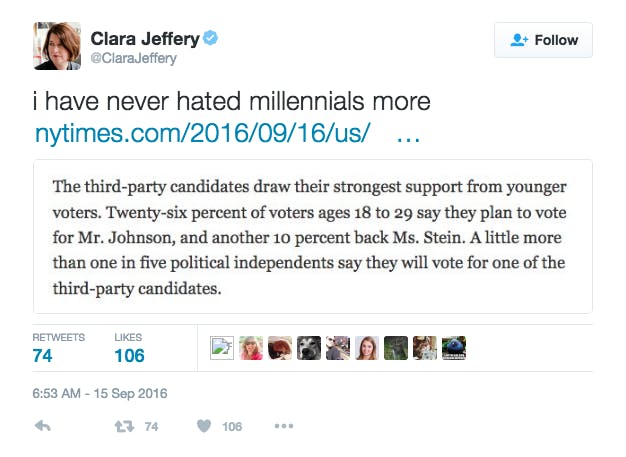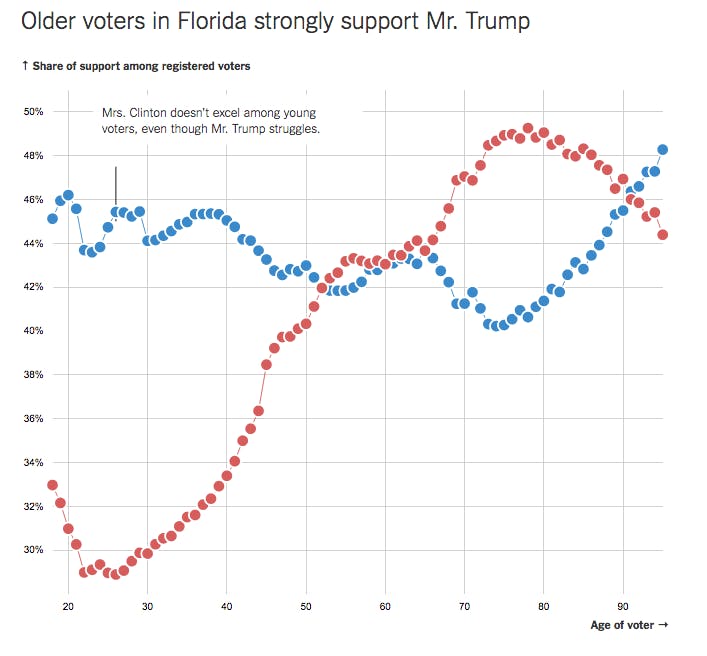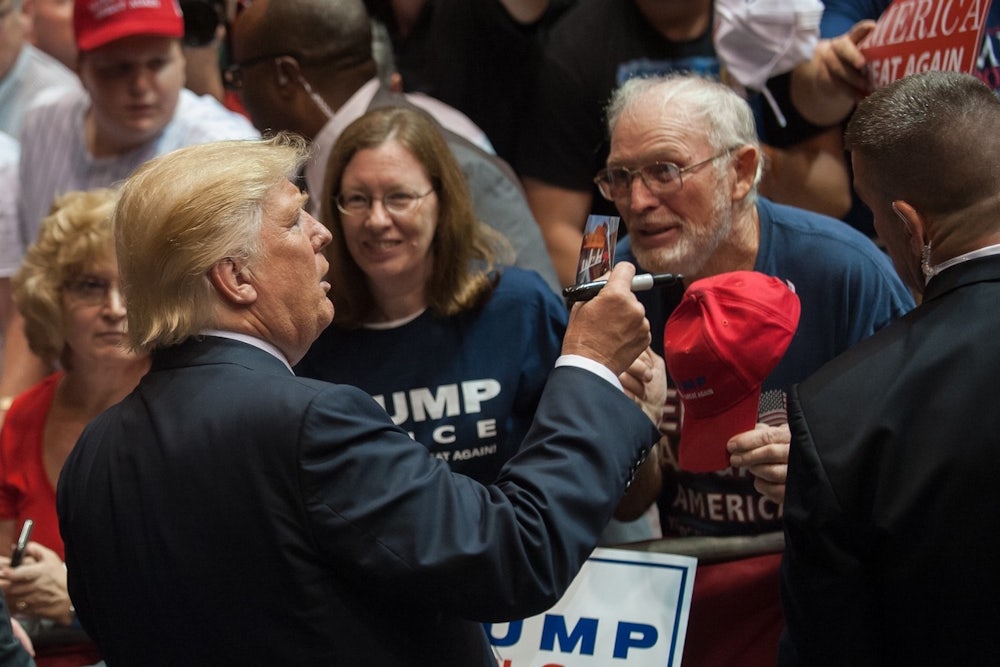Sixteen years since Bush v. Gore, Florida still looms large in the liberal imagination as the epicenter of the vote-counting crisis that wrongly handed an election to one of the worst presidents in American history—a symbolic reminder of the importance of vigilance in campaign combat. The state is no longer the bellwether of the Democratic Party’s political fortunes it once was, but in this election, it is part of a firewall that will make it very hard for Donald Trump to become president even if national polls remain close. Maintaining a healthy lead in Florida, in other words, is critical to liberal sanity.
Cue panic. As if liberals needed more sources of anxiety, the polls are particularly close in Florida right now. A New York Times Upshot poll, which was based on voter records in the same way campaigns conduct their internal polls, finds Hillary Clinton leading 41-40 in a four-way race, and tied 43-43 in a head-to-head race against Trump.
Even if it proves fleeting, the mortifying resemblance to 2000, provides a backdrop for Clinton’s increasingly warm and concerted courtship of young voters and of an increasing sense of alarm among Trump foes that millennials, through apathy or self-satisfied third-party voting, could tip the presidency into his hands.

I will address at another time the millennial generation’s role in keeping this election uncomfortably close. But as long as we’re going to play generational blame games for the possible destruction of American democracy, the Upshot’s data makes clear who bears it. Looking at the graph below, I see only one generation so selfish and entitled that they’d disappoint their parents, children, and grandchildren—and it isn’t millennials.

There’s a lot of area in this graph where Clinton leads Trump, and much less area where Trump leads Clinton. If everyone voted, Clinton would be destroying Trump with a coalition of young and middle-aged voters, even if Florida is a disproportionately old state. Trump, by contrast derives nearly all of his strength in this race from baby boomers. He really begins to pull away from Clinton with voters 65 and over and maximizes his support with voters in their mid-seventies, only to collapse again into a deficit with 90-plus voters, old enough to remember the last time American democracy was under threat from authoritarian movements.
The Republican Party has thrived with boomers for decades now, but in the Trump era, when they are settling into retirement, the nature of their designs for the country seem particularly odious.
In 2012, the disproportionately old, white Republican electorate banded together in an attempt to take away young and poor people’s health insurance and devolve Medicare, the public health care guarantee for retirees, to private insurance companies—but only for younger generations. One of Romney’s central promises was to leave the safety net completely untouched for the old and near-old. This time around, they’re essentially attempting the same thing—Republicans in Congress support Trump largely based on the assumption that he will sign bills to cut taxes and cut safety net programs—but with white nationalist fascism as the real lasting legacy.
In Florida, at least, Boomers want to leave Trump to millennials as a parting gift before they shuffle out of God’s waiting room into eternity. And if they push Trump over the top in Florida, his path to the presidency will suddenly become very wide. If you’re a liberal who spent the past week sleeping fitfully at the thought Trump might eke out a victory in November, go to Florida and thank your nearest Baby Boomer. Apparently they’re everywhere down there.
